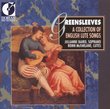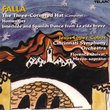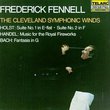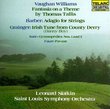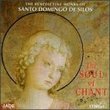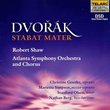| All Artists: Percy Grainger, John Eliot Gardiner, English Country Gardiner Orchestra, Monteverdi Choir, Constanze Backes, Nicola Jenkin, Angela Kazimierczuk, Nicolas Robertson, Paul Tindall, Simon Davies, Robert Johnston, Julian Clarkson Title: Danny Boy: Songs and Dancing Ballads by Percy Grainger Members Wishing: 0 Total Copies: 1 Label: Philips Release Date: 5/14/1996 Genres: Folk, Pop, Classical Styles: Vocal Pop, Opera & Classical Vocal Number of Discs: 1 SwapaCD Credits: 1 UPC: 028944665727 |
Search - Percy Grainger, John Eliot Gardiner, English Country Gardiner Orchestra :: Danny Boy: Songs and Dancing Ballads by Percy Grainger
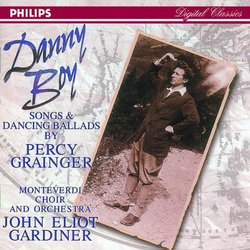 | Percy Grainger, John Eliot Gardiner, English Country Gardiner Orchestra Danny Boy: Songs and Dancing Ballads by Percy Grainger Genres: Folk, Pop, Classical
Grainger was one of music's true originals. Folk-song collector, bandmaster, composer of quirkily original orchestral and choral music, his works have yet to be fully appreciated--or even cataloged. The problem was that he... more » ![header=[] body=[This CD is available to be requested as disc only.]](/images/attributes/disc.png?v=15401716) ![header=[] body=[This CD is available to be requested with the disc and back insert.]](/images/attributes/disc_back.png?v=15401716) ![header=[] body=[This CD is available to be requested with the disc and front insert.]](/images/attributes/disc_front.png?v=15401716) ![header=[] body=[This CD is available to be requested with the disc, front and back inserts.]](/images/attributes/disc_front_back.png?v=15401716) |
Larger Image |
CD DetailsSynopsis
Amazon.com Grainger was one of music's true originals. Folk-song collector, bandmaster, composer of quirkily original orchestral and choral music, his works have yet to be fully appreciated--or even cataloged. The problem was that he liked to keep his performance options open, and generally produced several versions of the same piece, some of which were complete rewrites (and therefore new works), while others were modest rescorings. The choral music largely consists of folk tune and popular song arrangements that Grainger collected on his travels through the English and Irish countryside. You owe it to yourself to hear them; they are, one and all, delightful. --David Hurwitz Similar CDsSimilarly Requested CDs
|
CD ReviewsI love this CD! M. Miller | MD, United States | 10/08/2004 (5 out of 5 stars) "Best known for his piano compositions like Country Gardens and Shepherd's Hey, Percy Grainger was in fact a prolific choral composer. His choral works focus mostly on folk music of Britain, Denmark, Ireland, Scotland, and America. As a folk song "collector," Grainger traveled Europe in search of individuals that could sing these traditional pieces in the original style that had been passed down by oral tradition. The result is a fabulous array of exquisite arrangements for a variety of choir types. Many of you may recognize I'm Seventeen Come Sunday. Grainger's fun, rollicking arrangement features a stunning brass ensemble and orchestra accompaniment - one of the essential ingredients in many of his folk-song settings, including The Merry Wedding, a bridal dance set to poems from the Faeroe Islands. Remove the orchestra in these tunes, and somehow the soul of the song is missing. However, there are several a cappella arrangements in this recording as well. Brigg Fair and Mo Nighean Dubh are two of these; the former features a tenor soloist reciting the familiar "For it's meeting is a pleasure, and parting is a grief, but an unconstant lover is worse than any thief" amid other stanzas about meeting his love at a fair in August. The mournful melody makes one wonder if he is possible regretting an indiscretion that cost him his true love. Grainger's gorgeous a cappella arrangement of the Gaelic melody in Mo Nighean Dubh is set to words by John Park, and is full of rich harmonies and strong dynamic changes that match the text. The wordless, a cappella setting of Irish Tune from County Derry is familiar to everyone - it is the tune we know as Danny Boy or Londonderry Air. An identical setting was done for band, and both settings feature a section where the melody transfers to the tenors or the low brass. Very unusual, especially for bands. An exquisite arrangement of this well-loved melody. Love Verses from The Song of Solomon is perhaps the most gorgeous setting of this Biblical text. Grainger did not choose the somewhat overused "Rise up, my love, my fair one, and come away" text, instead opting for the perhaps more descriptive and personal sections in chapter 1 and the beginning of chapter 2. Scored for tenor, baritone, and mezzo-soprano solos, choir, and orchestra, the rich harmonies and Eastern flavor of the work features sweeping choral passages and brilliant climaxes of extraordinarily beautiful sound. The text partners perfectly with the yearning solo, choral, and orchestral parts. Shallow Brown, for mezzo-soprano soloist and men's choir, tells the tale of a woman's lover, who is leaving her alone as he sails the seas. You can hear the unshed tears in her voice as the ship gets farther away; the men's choir, representing the ship's crew, gradually decrescendos as they travel farther from shore. The orchestra paints an incredibly vivid picture of the swell and surge of the ocean's waves, imitating the intensity of the current, carrying the woman's love away. Father and Daughter is a rather horrific story, couched in a happy dance-tune, set for double choir and orchestra. The male soloists represent the tense question-and-answer session between the father and daughter, while the choirs obliviously sing the jolly text of this Faeroe Island dancing ballad, "Blithely dance the measure, all ye knights and swains so merrily." The bloody ending to this tale of lies and deceit is foreshadowed by the chaotic unraveling of the orchestra and choir parts. Grainger used this "unraveling" technique in The Bride's Tragedy as well; a heartbreaking story of two lovers drowned while trying to escape a jilted bridegroom and his angry kin. The story is almost Shakespearean in its complicated plot, and, like many Shakespearean tragedies, the terrible ending could have been avoided if everything had gone according to plan. I appreciate the flawed personalities of the characters in the story - their raw emotions are portrayed beautifully in Grainger's arrangement. For example, the bride furiously expresses her anger and frustration to her lover because he did not take her away the day before the wedding, as planned: "My lamp was lit yestreen, Willie, my window gate was wide: but ye came not nigh me, till day came by me and made me not your bride." Another element that makes The Bride's Tragedy so incredible is the second section of the piece - it could almost be called a second movement, it is so different from the first. This section begins when the lovers are overcome by the waves and begin to drown. The tempo slows and the voices take on an unearthly, far-away quality that seems to describe the floating of the bodies underwater and the loss of consciousness as death approaches. Rather gruesome, but certainly emotional and uncomfortably frank. This track is my favorite on the CD. Scotch Strathspey and Reel is a blending of six Scotch and Irish tunes together with the familiar sea-chanty "What Shall We Do With the Drunken Sailor" in stunning, chaotic harmony. This setting seems to be incredibly difficult to sing; I therefore find the performance of the men's choir quite impressive. I also appreciate the performance of The Lost Lady Found, an English dance-folksong sung in the original Lincolnshire dialect and style, which is as far from our idea of "proper British pronunciation" as one may get. This so-called improper pronunciation continues in Danny Deever, using words from Rudyard Kipling's Barrack-room Ballads. This grisly-comic "hanging" ballad is scored for small choir or baritone soloist, men's choir, and orchestra. A dramatic march set in dialogue format, telling the story of a traitor's hanging. The drama and upbeat pace continue in Tribute to Foster, Grainger's setting of Camptown Races. The second half of the piece contains additional verses written by Grainger himself, recollecting the times when his own mother sung the song to him as a lullaby. Another haunting melody is presented in The Three Ravens, an old English set for baritone solo, mixed chorus and five clarinets. The unusual text about a knight and a doe is apparently an allusion to the crucified Christ and his mother Mary. Dramatic dynamic swells and ghostly wails make this another remarkable creation by Grainger. I hope you have enjoyed reading about this CD; I know you will enjoy the recording even more! You will not be disappointed!" Better than Chandos 'The Grainger Edition' B. Marold | Bethlehem, PA United States | 01/22/2007 (5 out of 5 stars) "It is unfortunate that this 'Danny Boy' album by the Monteverdi Choir and Orchestra is not indexed more clearly by the name of the director, John Eliot Gardiner, as he is featured prominantly on the cover, and is probably the primary artistic contribution which makes this album better than the similar 'Works for Chorus and Orchestra' directed by Richard Hickox on Chandos. This is not to say the Chandos release is not good. It is very good. It's just that this one is better in both the selection of material and the quality of the performances. Both albums contain performances of one of my all time favorite ditty's, 'Scotch Strathspey and Reel', best known by its opening line, 'What do we do with a drunken sailor'. Hickox does it well. Gardiner and Co do it better. And, Gardiner includes a terrific closer, a 'Tribute to Foster', the great American art song composer, whose style Grainger seems to emulate in most of his vocal works. If you are intent on having the complete Chandos 'Grainger Edition', you won't miss out by picking them over the Phillips album, but you may really want both, if you are a serious Grainger fan." A great Grainger anthology Classic Music Lover | Maryland, USA | 09/08/2007 (5 out of 5 stars) "If you want everything Grainger wrote for orchestra and chorus, the Hickox series on Chandos is indispensible. But if you're looking for a good sampling of Grainger's musical style, then this CD by John-Eliot Gardiner is just the thing. I really like JEG's way with most of the selections. Brigg Fair, Seventeen Come Sunday, Shallow Brown and several others are well-known works, and JEG does a fine job with those, joined by a top-notch chorus and sharp orchestral accompaniment. There are also a few lesser-known works on the CD, including the Foster Tribute -- one of the most amazing and intriguing arrangements of Foster melodies you're ever likely to hear ... and at more than 11 minutes in length, it's almost a mini tone-poem for chorus and orchestra.
Buy this for a nice sampling of Grainger's special musical style ... then if the spirit moves, go for the whole enchilada over on Chandos -- all nine or ten volumes' worth!" |

 Track Listings (14) - Disc #1
Track Listings (14) - Disc #1
